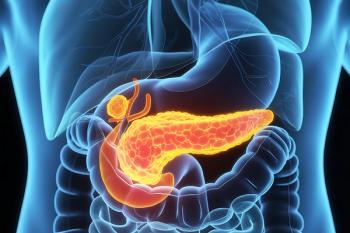
Type 2 Diabetes: Considerations for Achieving Targeted Glycemic Control
Dr Jennifer Brigitte Green addresses clinical considerations for patients with type 2 diabetes who are not responding to their oral antidiabetic agents and discusses her strategy for insufficient target glycemic control with insulin regimens.
Episodes in this series

Jennifer Brigitte Green, MD: Occasionally, patients will not respond to their oral regimen, and I think we need to make sure when we’re talking about response that we really define what we mean. Many people on oral medications for the management of hyperglycemia and type 2 diabetes will not be meeting their glycemic goals, but they still might be responding to the oral medications. It’s just not enough of an effect from those oral medications to control their blood sugars adequately. In the case where I’m seeing a person with a diagnosis of type 2 diabetes and they’re not responding at all to their oral medications, there are couple of big things that I need to keep in mind.
One would be are they actually taking the medications, because usually medicines for diabetes will do something. They might not do enough, but if it looks like somebody isn’t responding at all, I want to try to identify whether medicines are being filled and taken, and if they’re not, to determine why and see if we can figure out a regimen that’s going to be better suited to that person’s lifestyle. The other thing to keep in mind is that there will be the occasional cases where an adult with newly or recently diagnosed diabetes actually has a kind of diabetes that is autoimmune, or type 1, or related to very significant inability to product insulin. Thus, we need to be on the alert for that condition, and one of the signs would be that the oral medications for glycemic control simply don’t seem to be working.
For many people with type 2 diabetes, they do progress to insulin therapy. I would love to be able to say that if a person were to add insulin to their treatment regimen, that they would be able to easily achieve adequate glycemic control, but we know that’s not true. And in fact, if you look across the landscape of people with type 2 diabetes in this country, unfortunately, people who are on insulin tend to have poorer glycemic control than individuals who aren’t using insulin. That’s probably because those people have longer standing diabetes that’s more difficult to manage, and they may have contraindications to the use of other medications.
Insulin though is a really powerful tool, and I don’t want to downplay its role in the management of type 2 diabetes. But insulin only addresses 1 of the physiologic abnormalities that contributes to hyperglycemia and type 2 diabetes. It only addresses inadequate insulin secretion. It doesn’t address all of the other disordered aspects of metabolism that we know are present in type 2 diabetes. Thus, it alone can often be inadequate to control blood sugars.
The other reason that insulin might not be enough to control blood sugars in someone with type 2 diabetes is that you often reach a point in the insulin dosing where you’re unable to uptitrate the dose because either the person is having hypoglycemia that can’t be alleviated by changes in the dose or timing of the insulin administration, or they’re experiencing an adverse effect such as weight gain that limits your ability to uptitrate further.
Transcript Edited for Clarity
Newsletter
Get the latest industry news, event updates, and more from Managed healthcare Executive.






















